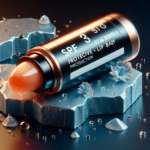In this article, you will learn some helpful tips on how to treat sunburn and relieve the pain and discomfort that comes with it. Whether you accidentally stayed out in the sun too long or forgot to reapply sunscreen, these remedies will help soothe your skin and promote healing. From applying aloe vera gel to taking a cool bath, there are several easy and effective ways to treat sunburn at home. Remember, prevention is key, so make sure to protect your skin from the sun’s harmful rays in the future. How To Treat Sunburn?
Hey there! So, you’ve spent a little too much time in the sun, and now you’re dealing with a painful sunburn. But don’t worry, I’ve got you covered! In this article, I’ll walk you through step-by-step on how to treat sunburn effectively and bring relief to your skin. So, let’s dive right in and get you on the path to healing that sunburn!
Understanding Sunburn
Before we get into the treatment options, let’s talk about what exactly sunburn is. Sunburn is a skin reaction that occurs when the skin is exposed to too much ultraviolet (UV) radiation from the sun. This exposure can cause redness, pain, swelling, and even blistering of the skin. It’s important to note that sunburn can happen in as little as 15 minutes of sun exposure, especially during peak hours.
What Causes Sunburn?
Sunburn is caused by overexposure to UV radiation from the sun. When UV radiation penetrates the skin, it damages the DNA in skin cells, triggering an inflammatory response. This inflammation is what causes the redness, pain, and swelling associated with sunburn.
Initial Steps To Take
When you first realize you have a sunburn, there are some initial steps you should take to start the healing process and alleviate some of the discomfort.
Get Out of the Sun
The first and most crucial step is to get out of the sun immediately. Continuing to expose your sunburned skin to UV radiation will only make the sunburn worse and prolong the healing process. Find shade or go indoors to protect your skin from further damage.
Cool Down the Skin
Cooling down the skin is essential to help reduce inflammation and provide relief from the burning sensation. Take a cool bath or shower, or apply cold compresses to the sunburned areas. Avoid using ice directly on the skin, as it can further damage the skin.
Hydrate, Hydrate, Hydrate
Sunburn can dehydrate the skin, so it’s essential to drink plenty of water to keep your skin hydrated from the inside out. Dehydrated skin can delay the healing process and make the sunburn feel even more uncomfortable.
Over-the-Counter Treatments
There are several over-the-counter treatments available that can help soothe sunburn symptoms and speed up the healing process. Here are some of the most effective options:
Aloe Vera Gel
Aloe vera is a natural plant extract that has been used for centuries to treat sunburn and other skin irritations. Aloe vera gel has cooling and anti-inflammatory properties that can help reduce redness, pain, and swelling associated with sunburn. Apply a generous amount of aloe vera gel to the sunburned areas several times a day for maximum relief.
Hydrocortisone Cream
Hydrocortisone cream is a mild corticosteroid that can help reduce inflammation and itching associated with sunburn. Apply a thin layer of over-the-counter hydrocortisone cream to the sunburned areas to help calm the skin and promote healing. Be sure to follow the instructions on the packaging and avoid using hydrocortisone cream on children under 2 years old without consulting a healthcare provider.
Oatmeal Bath
An oatmeal bath can help soothe sunburned skin and reduce itching and inflammation. Simply add colloidal oatmeal to a cool bath and soak for 15-20 minutes. The oatmeal contains anti-inflammatory properties that can help calm the skin and promote healing.
Home Remedies
In addition to over-the-counter treatments, there are several home remedies you can try to help treat sunburn and alleviate discomfort. These remedies are often natural and safe, making them popular options for sunburn relief.
Cold Compress
A cold compress is an easy and effective way to cool down sunburned skin and reduce inflammation. Simply soak a clean cloth in cold water, wring out the excess water, and apply the compress to the sunburned areas for 15-20 minutes. Repeat as needed to soothe the skin and provide relief.
Coconut Oil
Coconut oil is a natural moisturizer that can help hydrate and soothe sunburned skin. Apply a small amount of coconut oil to the affected areas and gently massage it into the skin. The oil will help lock in moisture and promote healing, while also providing a protective barrier against further damage.
Baking Soda Paste
Baking soda has anti-inflammatory properties that can help reduce redness and swelling associated with sunburn. Mix a small amount of baking soda with water to create a paste, then apply the paste to the sunburned areas. Leave it on for 10-15 minutes before rinsing off with cool water. Repeat a few times a day for maximum relief.
Prescription Treatments
In severe cases of sunburn, or if home remedies and over-the-counter treatments are not providing relief, you may need to seek medical attention for prescription treatments. A healthcare provider can assess the severity of your sunburn and recommend the appropriate course of treatment.
Topical Steroids
In cases of severe sunburn with significant inflammation, a healthcare provider may prescribe topical steroids to help reduce redness, pain, and swelling. Topical steroids are stronger than over-the-counter hydrocortisone cream and should only be used under the guidance of a healthcare provider.
Pain Medication
If you are experiencing significant pain from your sunburn, a healthcare provider may recommend over-the-counter or prescription pain medication to help alleviate the discomfort. Nonsteroidal anti-inflammatory drugs (NSAIDs) can help reduce pain and inflammation associated with sunburn.
Antibiotics
In rare cases, severe sunburn can lead to an infection of the skin. If you notice signs of infection, such as increased redness, warmth, swelling, pus, or fever, contact a healthcare provider immediately. They may prescribe antibiotics to help clear up the infection and prevent further complications.
Prevention Tips
Prevention is always the best approach when it comes to sunburn. By taking the necessary precautions, you can avoid the pain and discomfort of sunburn altogether. Here are some tips to help prevent sunburn and protect your skin from UV radiation:
Use Sunscreen
One of the most effective ways to prevent sunburn is to use sunscreen with a high SPF (sun protection factor). Apply a broad-spectrum sunscreen with an SPF of 30 or higher to all exposed skin, and reapply every two hours or after swimming or sweating.
Seek Shade
Avoid prolonged sun exposure during peak hours when the sun’s rays are the strongest, typically between 10 a.m. and 4 p.m. Seek shade under a tree, umbrella, or awning to protect your skin from UV radiation.
Cover Up
Wearing protective clothing, such as a wide-brimmed hat, sunglasses, and long sleeves, can help shield your skin from harmful UV radiation. Choose lightweight, breathable fabrics that provide adequate sun protection.
Stay Hydrated
Dehydration can increase your risk of sunburn and intensify its effects on the skin. Stay hydrated by drinking plenty of water throughout the day, especially when spending time outdoors in the sun.
Be Mindful of Medications
Some medications can increase your skin’s sensitivity to UV radiation and make you more prone to sunburn. If you are taking any medications, consult with a healthcare provider or pharmacist to determine if they can affect your sun sensitivity.
Final Thoughts
Dealing with a sunburn can be painful and uncomfortable, but with the right treatment and care, you can help your skin heal and recover quickly. Remember to take proactive measures to prevent sunburn in the future, such as using sunscreen, seeking shade, and wearing protective clothing. If your sunburn is severe or not improving with home remedies, don’t hesitate to seek medical attention from a healthcare provider. Take care of your skin, stay sun-safe, and enjoy the sun responsibly!




